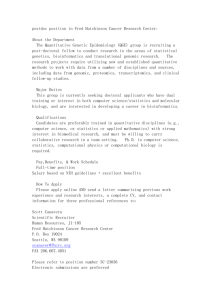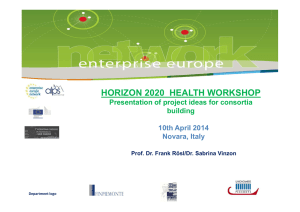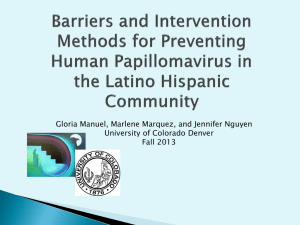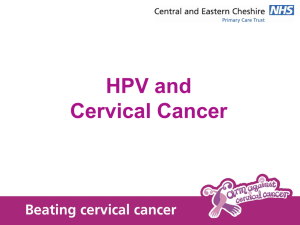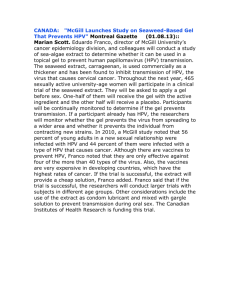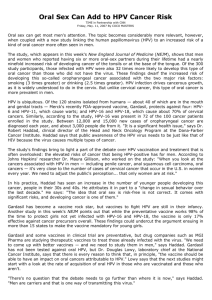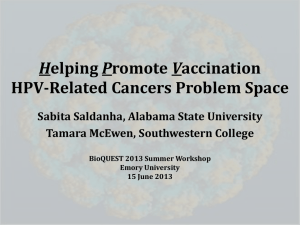Prospective and Retrospective Studies of HPV After Organ Transplant
advertisement
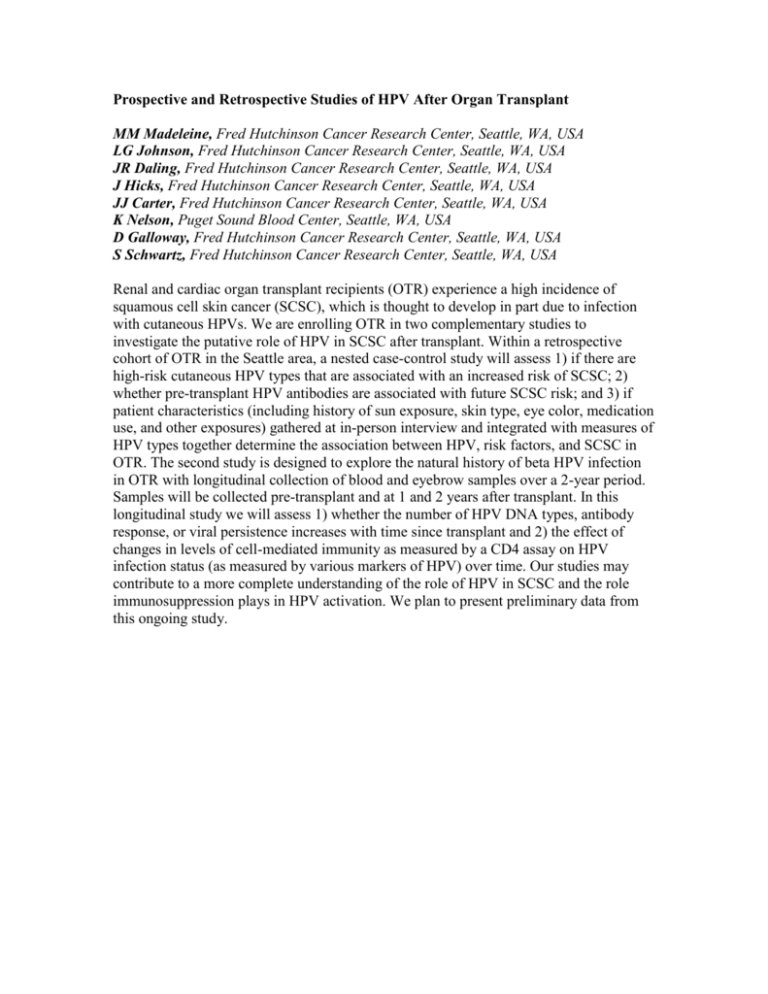
Prospective and Retrospective Studies of HPV After Organ Transplant MM Madeleine, Fred Hutchinson Cancer Research Center, Seattle, WA, USA LG Johnson, Fred Hutchinson Cancer Research Center, Seattle, WA, USA JR Daling, Fred Hutchinson Cancer Research Center, Seattle, WA, USA J Hicks, Fred Hutchinson Cancer Research Center, Seattle, WA, USA JJ Carter, Fred Hutchinson Cancer Research Center, Seattle, WA, USA K Nelson, Puget Sound Blood Center, Seattle, WA, USA D Galloway, Fred Hutchinson Cancer Research Center, Seattle, WA, USA S Schwartz, Fred Hutchinson Cancer Research Center, Seattle, WA, USA Renal and cardiac organ transplant recipients (OTR) experience a high incidence of squamous cell skin cancer (SCSC), which is thought to develop in part due to infection with cutaneous HPVs. We are enrolling OTR in two complementary studies to investigate the putative role of HPV in SCSC after transplant. Within a retrospective cohort of OTR in the Seattle area, a nested case-control study will assess 1) if there are high-risk cutaneous HPV types that are associated with an increased risk of SCSC; 2) whether pre-transplant HPV antibodies are associated with future SCSC risk; and 3) if patient characteristics (including history of sun exposure, skin type, eye color, medication use, and other exposures) gathered at in-person interview and integrated with measures of HPV types together determine the association between HPV, risk factors, and SCSC in OTR. The second study is designed to explore the natural history of beta HPV infection in OTR with longitudinal collection of blood and eyebrow samples over a 2-year period. Samples will be collected pre-transplant and at 1 and 2 years after transplant. In this longitudinal study we will assess 1) whether the number of HPV DNA types, antibody response, or viral persistence increases with time since transplant and 2) the effect of changes in levels of cell-mediated immunity as measured by a CD4 assay on HPV infection status (as measured by various markers of HPV) over time. Our studies may contribute to a more complete understanding of the role of HPV in SCSC and the role immunosuppression plays in HPV activation. We plan to present preliminary data from this ongoing study.
